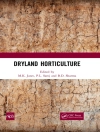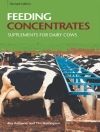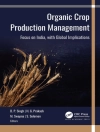This book discusses the most challenging task ahead of researchers from India and around the globe: providing disease-free field crops for the ever-growing world population. In Asia, despite being cultivated in massive volumes, major crops, including cereals, oil seed, tuber and non-tuber vegetables, and fruit, are not meeting the demands of the increasing population. This book showcases naturally occurring beneficial microbes in the form of plant growth promoting rhizobacteria, or PGPR, which make it possible to grow field crops without applying synthetic chemicals.
Our understanding of PGPR has increased exponentially in recent decades. They play a multifarious role in developing sustainable systems of crop production and protection. The book focuses on the mechanistic behaviors of PGPRs, their use to develop sustainable cultivation techniques, and their application to enhance crop growth and productivity at the cutting edge of tech-oriented agricultureand to replace hazardous chemicals with microbial inoculants. The book is useful to agronomists, microbiologists, ecologists, plant pathologists, molecular biologists, environmentalists, policy makers, conservationists, and NGOs working on organically grown field crops.
Daftar Isi
Microbes in Agriculture : An Introduction.- Role of Chemotactic and root colonizing rhizobacteria in plant growth promotion and yield improvement of Sesamum indicum L.- Plant Growth Promotion and Suppression of Fungal Pathogens in Rice by Plant Growth-Promoting Bacteria.- Problem of mercury toxicity in crop plants: Can plant growth promoting rhizobacteria (PGPR) be an effective solution?.- Regulatory role of rhizobacteria to induce drought and salt stress tolerance in plants.- Bacterial mixture, the future generation of inoculants for sustainable crop production.- In Sustainable Agriculture: Assessment of Plant Growth Promoting Rhizobacteria in Cucurbitaceous Vegetable Crops.- Plant Growth Promoting Rhizobacteria Induced Defense against Insect Herbivores In Field Crops.- Azospirillum brasilense Az39 as a PGPR model: from the genomics to the field performance and soil traceability
Fabricio Cassán, Argentina.- Plant growth-promoting rhizobacteria (PGPR): their potential effect on enhancing protection against viral disease.- Harnessing beneficial mechanisms of Aerobic Endospore forming Bacteria (AEFB) in productivity improvement of native crop of Himalayan biodiversity.- Utilization of endophytic bacteria isolated from legume root nodules for plant growth promotion.- Beneficial impact on crop productivity enhancement of leguminous crop using ACC-deaminase producing rhizobacteria.- Conclusion.











